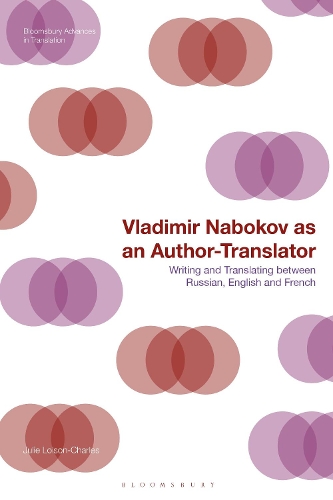
Vladimir Nabokov as an Author-Translator: Writing and Translating between Russian, English and French
(Hardback)
Available Formats
Publishing Details
Vladimir Nabokov as an Author-Translator: Writing and Translating between Russian, English and French
By (Author) Dr Julie Loison-Charles
Bloomsbury Publishing PLC
Bloomsbury Academic
15th December 2022
United Kingdom
Classifications
Tertiary Education
Non Fiction
Language and Linguistics
Translation and language interpretation
Literary studies: general
891.7342
Physical Properties
Hardback
280
Width 164mm, Height 238mm, Spine 22mm
580g
Description
Exploring the deeply translational and transnational nature of the writings of Vladimir Nabokov, this book argues that all his work is unified by the permanent presence of three cultures and languages: Russian, English and French. In particular, Julie Loison-Charles focusses on Nabokovs dual nature as both an author and a translator, and the ways in which translation permeates his fictional writing from his very first Russian works to his last novels in English. Although self-translation has received a lot of attention in Nabokov criticism, this book considers his work as an author-translator, drawing particular attention to his often underappreciated and underestimated, but no less crucial, third language; French. Looking at Nabokovs encounters with pseudotranslation, Julie Loison-Charles demonstrates the influence this had on his practice as both a translator and a writer, arguing that this experience was crucial to his ability to create bridges between the literary traditions of Europe, Russia and America. The book also triangulates his practice and theory of translation for Onegin with those of Chateaubriand and Venuti to illuminate Nabokovs transnational vision of literature and his ethics of translation before presenting a robust case for reconsidering his collaborative translations in French as mediated self-translations.
Reviews
In its depth, breadth, and scope, Loison-Charless book is unparalleled. This is a theoretically sophisticated, scholastically informed, and archival-research-fortified study of Nabokovs translations across languages and traditions. Neither apologetic nor critical in its approach, this is an exemplary exercise in even-handed analysis. Erudite in its syntheses, illuminating in its implications, it is also helpfully, refreshingly witty. Most important, of course, it offers an informed, and sensitive treatment of the entire Eugene Onegin project. -- Stanislav Shvabrin, University of North Carolina at Chapel Hill, USA
Loison-Charles provides a fascinating exploration of Vladimir Nabokovs theories and practices of translation, both of others works and his own. Bolstering her analysis with Nabokovs unpublished correspondence with translators, Loison-Charles skillfully highlights the changing strategies Nabokov deployed to ensure that his artistic vision was accurately conveyed to new audiences. -- Julian Connolly, University of Virginia, USA
Author Bio
Julie Loison-Charles is a Lecturer in Translation Studies at Lille University, France and the President of the French Vladimir Nabokov Society.
